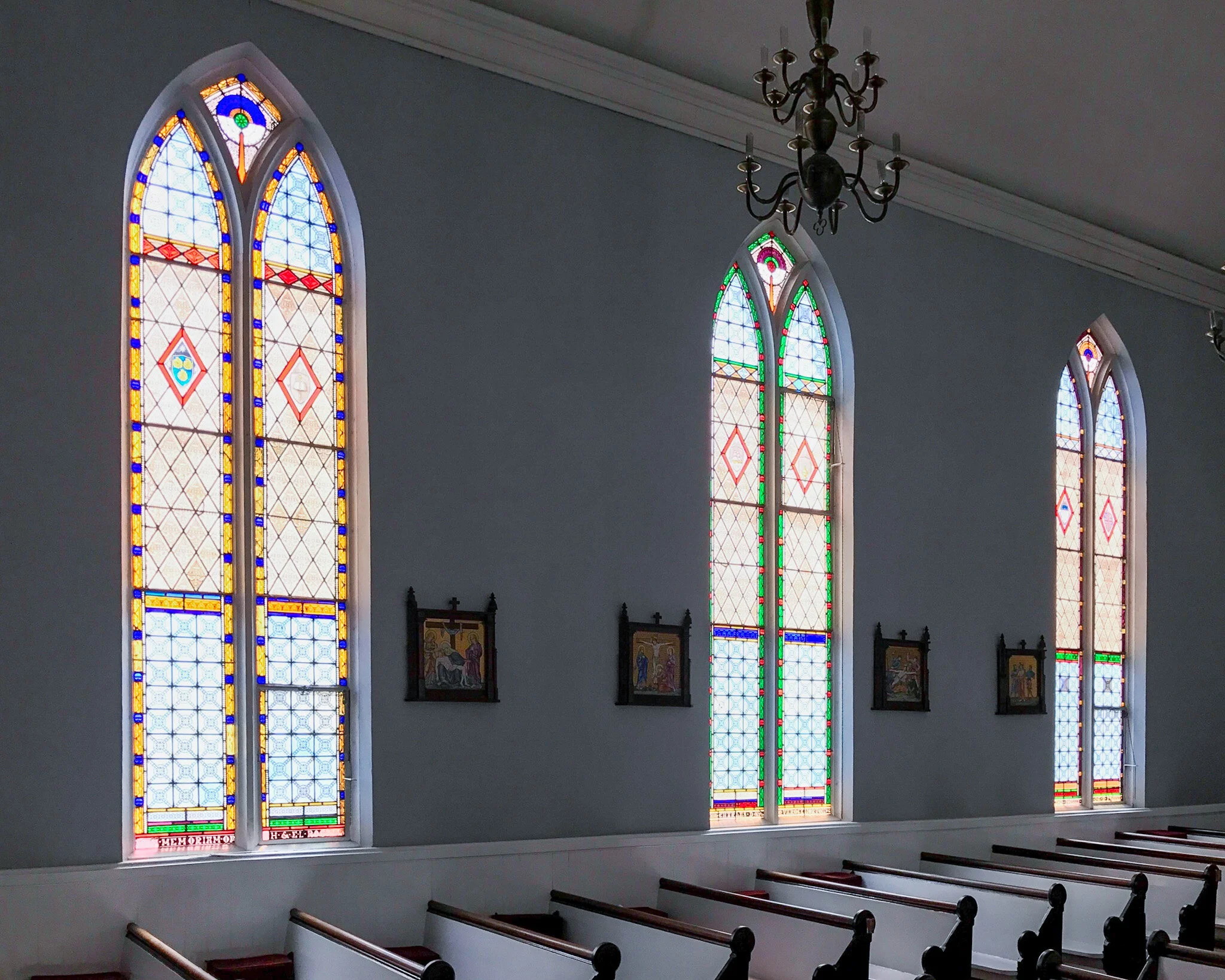Many people know Augustine through his book, Confessions, in which he tells the story of his life. Looking back, we may see an old, dry, scholarly saint of little interest. However, in today’s world of social media, his life would keep people enthralled. He famously prayed, “O God, save me, but not yet,” because he was not ready to let go of the things he though gave him pleasure. His theology also was not a cerebral exercise, but a working out of how God was at work amid the challenges and instabilities of a world faced with plague, war, and division.
His mother, Monnica (also a saint), was a Christian who loved him and taught him the Christian faith. His father was a Roman official and a pagan. Eventually, the Holy Spirit brought the seeds Monica planted in her son to full blossom and Augustine’s life was transformed. After he surrendered to Christianity, he was baptized by Ambrose, Bishop of Milan, his mentor, and also a saint! He then used his scholarly training and great intellect for the teaching of the Gospel.
His writings endure to this day
Things Present and Things Past
During this time of Pandemic, when every week seems to present a need to figure out a new way of doing things, I have discovered anew one of my favorite prayers from Morning Prayer - A Collect for Guidance:
Heavenly Father, in you we live and move and have our
being: We humbly pray you so to guide and govern us by
your Holy Spirit, that in all the cares and occupations of our
life we may not forget you, but may remember that we are
ever walking in your sight; through Jesus Christ our Lord.
Amen.
While this prayer appears for the first time in the 1979 Book of Common Prayer (p. 100), it actually comes from a collection of prayers published in 1913, which attributes it to an "ancient collect" from 446 AD. So, it is truly something old and something new.
Joseph of Arimathea: Practicing Generous Compassion
Joseph of Arimathea is a quiet favorite of mine among the calendar of saints. His feast day is August 1 for us, and he is remembered on July 31 by the Orthodox and Lutherans and August 30 by Roman Catholics.
We know little about Joseph from the Gospels other than that he was a “secret follower” of Jesus and a dissenting member of the religious council that condemned Jesus. After Jesus’ death, all four gospels tell us that he took the body of Jesus to bury in a tomb, most likely his own tomb that he had prepared for himself.
The first thing that captures me is Joseph’s act of compassion in providing a dignified burial for a man condemned and executed as a traitor and blasphemer.
Peace be With You - In ASL!
As we prepare to regather, one of the changes in our liturgy is that we will not be able to exchange the peace by hugging or shaking hands. We still need to maintain physical distance for everyone's safety. It's an odd truth that the loving and peaceful gesture is to actually stand back! However, exchanging the peace is a very important part of our liturgy, and we can do so in a holy, reverent, and meaningful way.
Putting on the Armor of God
"Breastplate" is a weird name for a prayer, but it makes sense. In Ephesians 6:10-18, Paul speaks of the "armor of God." Specifically, he writes, "Therefore put on the full armor of God, so that when the day of evil comes, you may be able to stand your ground, and after you have done everything, to stand. Stand firm then, with the belt of truth buckled around your waist, with the breastplate of righteousness in place, and with your feet fitted with the readiness that comes from the gospel of peace." (Ephesians 6:14-16)
Early christians took Paul's words as allegories for spiritual tools, even to the point that there are vesting prayers for the Priest's vestments that link each item with a part of Paul's armor!
One famous allegory is St. Patrick's Breastplate, and we've used it many times this Pandemic season as an introduction to our evening Complines
The American Experiment
One of my favorite ways to mark the Fourth of July is to listen to NPR’s annual reading of the Declaration of Independence. With a stirring musical backdrop and diverse voices, they bring the text to life with the urgency and determination of the day. It's a nine-minute listen and is worth your time. Thank of how those nine minutes shaped hopes and dreams around the world. I promise your time will be worth it!
Independence Day is a remarkable day. It is not just a celebration of the founding of an independent nation, but a declaration of values and aspirations that were (and still are) far from universally appreciated.
Independence Day is one of two national holy days in our liturgical calendar. The other is Thanksgiving Day. It is always right for a church to pray for the nation, but what does it mean to elevate a national holiday to the ranks of holy days commemorating key moments of our faith?
It Matters How We Tell the Story
Our culture is facing a reckoning with how we tell our story. Who has been left out? What has been sanitized? Do those who have gotten all the credit really deserve all the credit? Are there people who have been pushed into the shadows without whom our story and its heretofore major characters would not exist?
There is more than one way to tell a story. I learned this through studying Scripture. Some might think that is a bad thing. If there are multiple versions of the same story, who do we believe? We often want the *one* story that is definitive. Rarely, however, is there such a thing. Indeed, oftentimes having multiple version of the same story can lead to greater understandings of the truth.
A Thrill of Hope!
Ministry as Encouragement
Why Living Stones?
We each are stones built on Christ to take part in God’s ongoing work of redemption and healing. It is the ministry, quickened by the Holy Spirit, that makes us living stones. It is our calling to be God’s people of encouragement, hope, and joy as we participate in God’s healing and renewal of the world.











